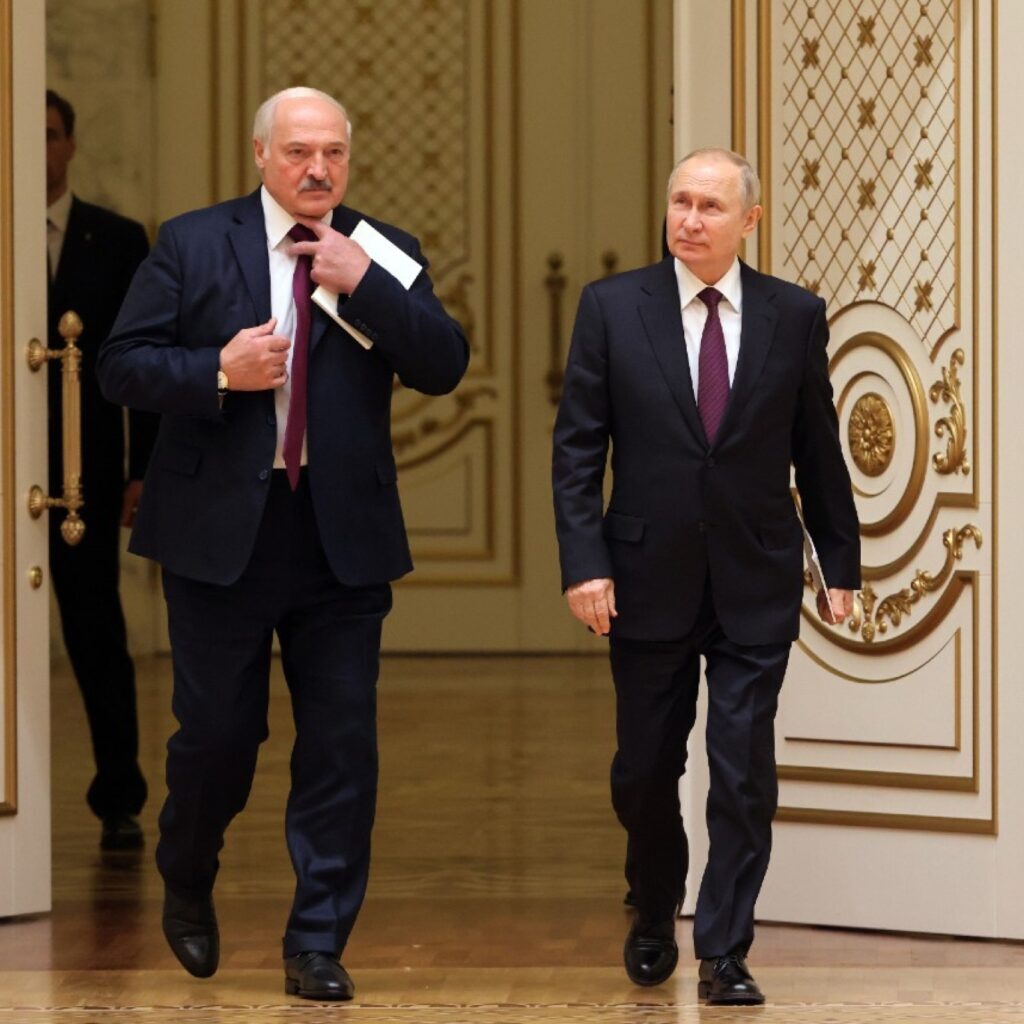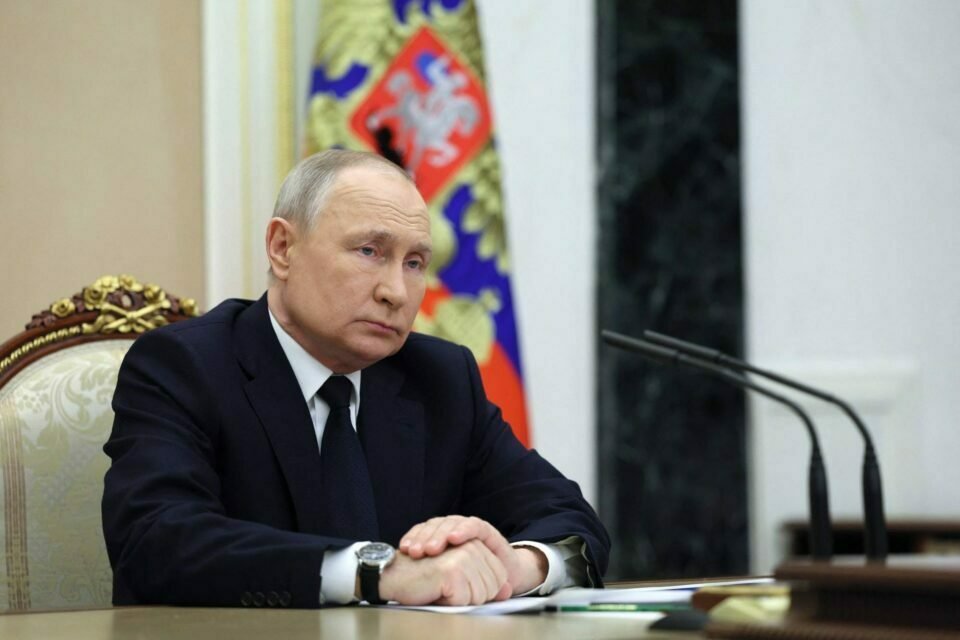Last Monday, Vladimir Putin revealed more information about Russia’s alleged intention to station tactical nuclear weapons in Belarus. The burst of alarmist reporting on what this meant brings to light a lot of the problems with Western reactions to Russian nuclear threats.
Russia may be surprised by how Putin’s remarks have been interpreted in the West, but there is no question that they will find it to their great satisfaction. Russian nuclear weapons have already been “used,” for that reason. In order to effectively dissuade the West from completely helping Ukraine against Russia’s imperialist war, it has exploited them to great effect without actually using them by relying on hollow warnings about prospective nuclear strikes.

But by now, we ought to know better than to mistake what Putin has said for what Russia has done or is likely to do.
Plans by Putin
Nothing new was revealed by Putin in the middle of 2022, when he already had plans announced. The declared purpose from last week wasn’t novel; it just had dates that weren’t previously disclosed.
The UK’s revelation that it will give Ukraine tank shells containing depleted uranium also prompted Putin to act, according to numerous reports. Putin has already stated that Russia will “act proportionately” to such a move, but that was not the declared catalyst in Saturday’s rehashed plans.
In the complete transcript of his interview, which Russian TV has made available, Putin made it clear that this was a long-standing strategy that existed “beyond the context” of the UK’s statement. It goes without saying that Russia will be eager to maximize the intimidatory potential of any plans to advance long-range missile systems, allowing them to threaten broader parts of Europe.
There is precedence in Russia’s long-standing plan to station Iskander missiles in Kaliningrad, a region bordering the Baltic Sea. This plan created new anxiety among Western leaders each time it was revealed throughout the previous decade.
Russia has known for a long time that references to military deployments do not necessarily need to be recent in order to be effective; they will instead continually elicit a very gratifying wave of discussion from a collective West that lacks the long-term memory to put them in context.
As is typical with such “announcements,” 24 hours later reality checks on the reporting begin to appear in those same media sites with the “announcement” of nuclear weapons to Belarus as well. Yet the harm has already been done by then.
The strategy of Russia
In a report published this week by the Chatham House think tank for international affairs, I detail how Russia’s nuclear scare tactics have been very effective in preventing Ukraine from receiving the support it needs to win the war, and even in preventing some Western leaders from supporting Ukraine to win it at all.
That’s for more reasons than just what Putin has declared when the massive invasion began in February 2022. It is the outcome of a protracted operation that rallied all of Moscow’s propagandists, influencers, mouthpieces, and entrenched agents of influence throughout the West, all of whom were tasked with hammering home the same message: opposing Russia will result in nuclear war.
The way the foundation of the discussion in Western policy has shifted is a good indicator of how successful that effort was. The concept of escalation control and how to discourage Russia has been replaced with the emphasis on preventing any further escalation on the presumption that only Russia is capable of using deterrence. As a result, Putin has full control.
In order to avoid facing the repercussions of its actions in Ukraine, Russia has exploited its nuclear arsenal as a get-out-of-jail-free card. This has been made possible by the information ecosystem that amplifies and exploits nuclear threats, which includes both legitimate Western media outlets and Russia’s own network of propagandists and influencers.
Belarus’s implications

For the time being, Belarus, a neighboring country, is affected more immediately. For many years, Belarusian President Alexander Lukashenko was successful in preserving some degree of independence, particularly in avoiding outsourcing Belarus’s security to its fictitious friend Russia — for example, by resisting Russian proposals for an airbase there.
With the rigged elections in Belarus in August 2020, everything changed. In order to maintain his position of authority, Lukashenko leaned more heavily on Russia, which tightened its hold on his nation.
That was a crucial prerequisite for Belarus to agree to let Russia use its airspace and land facilities in February 2022 to invade Ukraine.
Although Belarus’ armed forces closely cooperate with those of Russia, they have not publicly shown a desire to join Moscow in a war because doing so would expose their own nation to retaliation.
In addition, numerous reports from earlier this year that Russia might be planning a new invasion on Ukraine from Belarusian territory are now widely disregarded because Russia has not organized the necessary forces.
However the fact that Lukashenko’s country serves as a rear support zone for Russian military operations makes it a target nonetheless, as demonstrated by Ukrainian drone attacks on high-value Belarusian assets. If and when hosting Russian nuclear missiles occurs, Lukashenko is putting his nation at considerably greater risk.
Despite the fact that Russia’s threats have so far been proven to be untrue, there is still a non-zero probability that Putin will eventually order a nuclear strike if he believes, erroneously, that the advantages of doing so exceed the drawbacks.
A significant shift in how other nations approach convincing Russia against actually using nuclear weapons should further diminish the non-zero possibility. Russia may very well think that if it did deploy nuclear weapons, the effects would be under control, as I go into depth in the Chatham House paper.
That needs to change because, despite the misery and suffering that Russia has caused in Ukraine, the cost of failing to prevent Putin from engaging in nuclear adventurism would be much greater.




